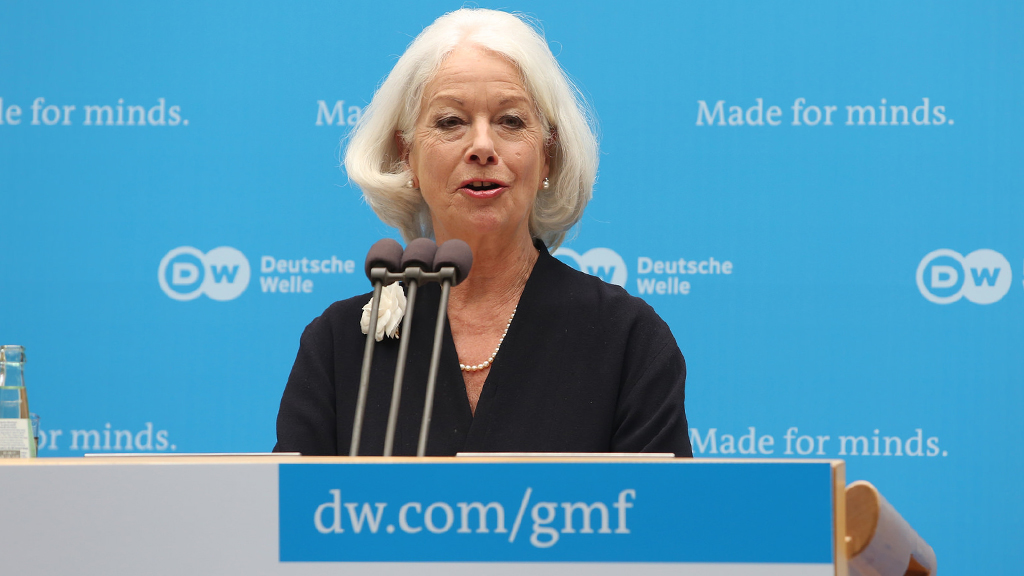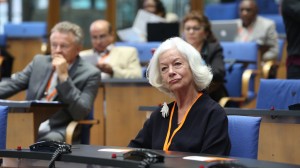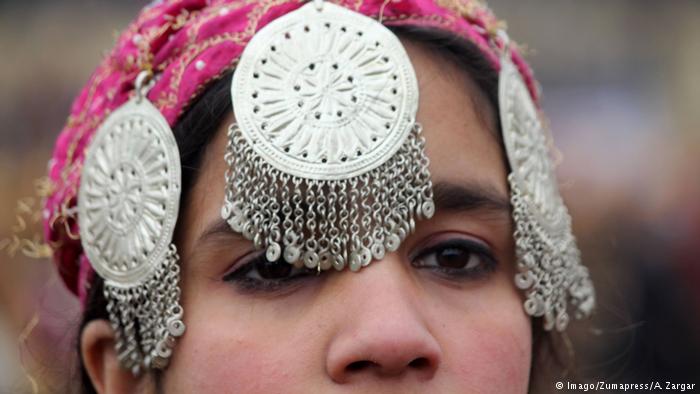“We as consumers have lost sight of its cost to the planet.”
Scilla Elworthy Ph.D., Councillor of the World Future Council and founder of the Oxford Research Group and Peace Direct, was the one of the first women to publish a report on female genital mutilation that led to the World Health Organization campaign to eradicate the practice. Three-time nominee for the Nobel Peace Prize, she recently published her latest book “Pioneering the Possible – Awakened Leadership for a World that works” and is certain that a different future for all of humanity is possible, if humans wake up.
Roma Rajpal Weiß from DW-Women Talk Online talked to Elworthy, a keynote speaker at the Global Media Forum 2015, about the urgent need to create awareness about the cost of our consumerism on the planet. How is our consumption posing a challenge to our planet?
Scilla Elworthy: At the moment the way that consumption is working is that people don’t appreciate when they want to buy something new that it comes with a very severe cost to the planet. I think it is something extraordinary that 90 percent of raw materials used in the manufacturing process become waste before the product even leaves the factory. So this is really suicidal for the planet that we are wasting all these resources and making things that people don’t even keep because 80 percent of the products are thrown away within the first 6 months of purchase. And you think of this particularly with plastic toys that children don’t even care about anymore. So, we have got ourselves in a situation where we have lost sight of the cost to the planet of what we consume.
DW: What needs to be done so we put a break to this consumerist culture that has engulfed us and that media is in a way encouraging?
One thing that women can do is teach their children that they don’t need to have every fashion and fad, that it is probably valuable to get your nourishment and sense of self from being in nature, from being good at sports or playing with animals, all the things that have traditionally nourished human beings, growing vegetable for example, you don’t need to go shopping all the time. Mothers can have a really big influence on the choices that their families make, especially in the supermarket by saying ‘No, we don’t need that’. We are not going to spend our money on that instead we will spend it on going to the Zoo or going horse-riding, or whatever we can afford, but not buying more plastic trash.
DW: How can women help slowdown the process of climate change?
The first step that women can take is find out more about their energy consumption choices, for example, in many parts of Africa instead of kerosene lamps and stoves people are changing to solar. So, it is now possible to get a solar light that you can take with you, it won’t get stolen because you can attach it to your hand and you can charge it during the day, at night you can study with it without needing a torch that would need battery or a kerosene lamp. Likewise, the technology for certain stoves is moving ahead very fast. So, if you are member of a women’s organization, you can do a lot, say, by helping people in your community make informed choices about the way we choose to travel, whether we use public transport or use a private vehicle, very big choice for the whole environment. We have set a very bad example in the West by making everybody think that each person has to have a motorcar. It’s ridiculous, especially now that so many more public transport vehicles are driven by hydrogen or solar. Particularly in Asia, it is stunning to me that there isn’t more use of the sun.
I feel that particularly the younger generation have so much brilliant access to information and facts and they can spread it. This kind of information is so easy for them to spread on social media. I think women have a particular role in that. It strikes me in our organization Rising Women, Rising World that women are particularly more alert what is happening to our planet.
Interview: Roma Rajpal Weiß
Editor: Marjory Linardy
WTO RECOMMENDS
China’s 26-Centigrade Lady Supports A Green Lifestyle
“During the winter months, the AC temperature in malls and department stores was so high that people had to wear summer clothes, while during the summer months, it was so cold indoors that people had to take thick clothes with them. The weather in the state of California is sunny, but there was a law against airing clothes within your own courtyard, so that people have to use a drying machine; otherwise they would be fined USD 50. I believe our earth cannot sustain this kind of wasteful lifestyle.” (From April 30, 2015)
Tech Needs Girls: equipping Ghanaian girls with IT skills
Learning about technology and practical science can help children develop into critical thinkers. That is according to a young Ghanaian entrepreneur who encourages girls as young as six to develop technology skills. (From März 27, 2015)
India – Singing and Counseling Young Mothers on Health (Part I and Part II)
A lilting tribal tune catches the attention of the gaggle of women gathered at the Integrated Child Development Services (ICDS) center in Jidu Pandra village that falls in Ormanjhi block of Jharkhand’s Ranchi district. Almost at once, all eyes follow the sound that is coming from the farthest corner of the room. (From June 19, 2015)








